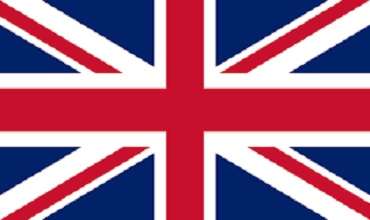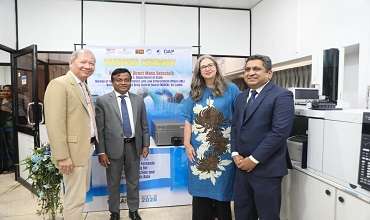Standard Chartered Sri Lanka held a virtual workshop on July 13 to discuss how local financial institutions could establish a robust framework for Environment and Social Risk Assessment (ESRA), prior to proceeding with a lending decision.
The webinar, conducted by Roger Charles, Executive Director for Environmental and Social Risk Management, Standard Chartered PLC, focused on the current challenges as well as the future aspects of Environment and Social Risk Management, the bank said in a media release.
During the workshop, Mr. Charles shared some of the Group’s best practices for incorporating sustainability considerations into lending decisions to help local banks understand how they can evaluate their clients using ESRA criteria. He pointed out that through the integration of Environmental, Social and Governance (ESG) in financing decisions, financial institutions can help minimise the negative impact that its business activities can have on the communities as well as on the environment.
Commenting on the timeliness of the workshop was Tamani Dias, Executive Director and Head, Local & International Corporates, Standard Chartered Sri Lanka. She said, “We recognise that our success as a bank is intrinsically linked to the health and prosperity of our market. For us, sustainability is about creating long-term value for our clients and working in partnership with our stakeholders to make a positive economic and social contribution. We hope that this workshop will encourage our local financial institutions to ‘Do No Harm’ and ‘Do More Good’ by integrating ESRA criteria in their financing decisions and also, consider Standard Chartered as their trusted ESG partner moving forward.”
The webinar was one of the first in a series of online workshops to be conducted by Standard Chartered as part of its commitment to its stand on ‘Accelerating Zero’, in terms of helping emerging markets, such as Sri Lanka, to reduce carbon emissions as fast as possible, without slowing development, thereby putting the world on a sustainable path to net zero by 2050.
You can share this post!
Content

A Thai woman walking topless in Arugam Bay town has been arrested by the Police.

The UK government has unveiled a package of reforms to simplify imports from developing countries which allows for more garments manufactured in Sri Lanka to enter the UK tariff-free.

The Cabinet has approved a proposal for Sri Lankans overseas to apply for their passports through an online system via the Lankan diplomatic missions.

Villagers in Nirmalapura, Daluwa, Norochcholai today staged a protest over an incident where a group of Navy officials and sailors had assaulted a resident in the area over night, Police said.

Ajith Gallage, the owner of a Bird Park in Nagarawawa, Hambantota, has been remanded over allegations of concealing illegally imported motorcycles, in a warehouse owned by him.






Leave Comments